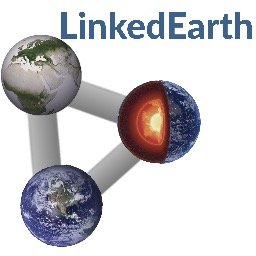- Spaces
Spaces
Use Spaces to collaboratively work with your team to manage and annotate data.

xdomes
The 'Cross-Domain Observational Metadata for Environmental Sensing (X-DOMES)' is an NSF/EarthCube project tasked to develop prototypes for the application of standards-based description of environmental sensor metadata, including provenance, that is paramount to automated data discovery, access, archival, processing, as well as quality control and assessment.
- 17 0 1
neon
The National Ecological Observatory Network: Open data to understand how our aquatic and terrestrial ecosystems are changing.
- 179 0 1

earthchem
Community-driven preservation, discovery, access, and visualization of geochemical, geochronological, and petrological data
- 639 0 1

resource_registry
The EarthCube Resource Registry (ECRR) is intended to provide immediate access to a list of EC capabilities to understand what EC is, and what it isn’t. To support this goal, the ECRR project has developed several persistent resources available for wider EarthCube use
- 274 0 1

datadiscoverystudio
Data Discovery Studio indexes over 1.6 million dataset descriptions from 40+ geoscience data repositories and community contributions. Going beyond data search, it adds semantic enhancements to the metadata using text analytics, exports dataset descriptions using standard ISO 19115 and schema.org markup for indexing by commercial search engines, allows users to contribute to and edit the metadata, trace provenance, organize the found datasets into sharable collections, and launch Jupyter notebooks on the found data.
- 1415386 0 1

linked.earth
The LinkedEarth wiki is an EarthCube-funded platform that: enables the curation of publicly-accessible database by paleoclimate experts, and <br>fosters the development of standards, so paleoclimate data are easier to analyze, share, and re-use.
- 0 0 1

balto
Driven by data-rich use cases that span geodesy, geodynamics, seismology, and ecohydrology, the BALTO project will enable brokered access to diverse geoscience data, including data that have been collected/organized by individual scientists in novel or unusual forms, also known as “long-tail” datasets.
- 89 0 1

edi
Data are one of the most valuable products curated by the Environmental Data Initiative (EDI). Data and metadata derived from publicly funded research are made available through this website with as few restrictions as possible, and on a non-discriminatory basis.
- 28248 0 1

bco-dmo
Biological & Chemical Oceanography Data Management Office
- 5018 0 1

r2r
The Rolling Deck to Repository (R2R) program provides fleet-wide management of underway data to ensure preservation of, and access to, our national oceanographic research assets.
- 0 0 1
iedadata
The IEDA data facility’s mission is to support, sustain, and advance the geosciences by providing data services for observational geoscience data from the Ocean, Earth, and Polar Sciences. <br> <br>IEDA systems serve as primary community data collections for global geochemistry and marine geoscience research and support the preservation, discovery, retrieval, and analysis of a wide range of observational field and analytical data types. Our tools and services are designed to facilitate data discovery and reuse for focused disciplinary research and to support interdisciplinary research and data integration.
- 7147 0 1

iris
IRIS Data Services (DS) has very specific charges and consists of several components or “nodes”. These nodes work together to insure the smooth flow of GSN and PASSCAL data from the stations to the seismological research community.
- 28 0 1